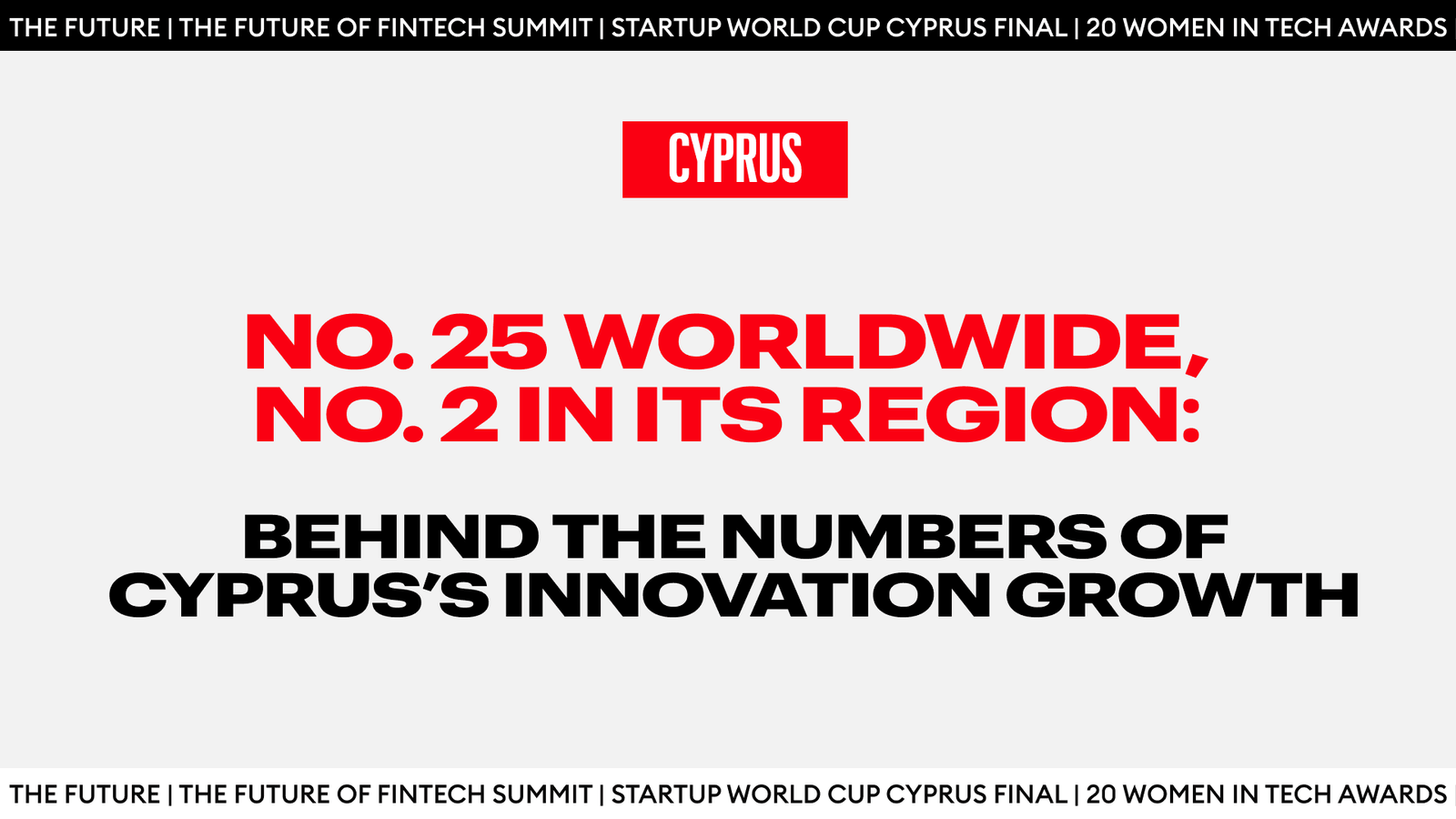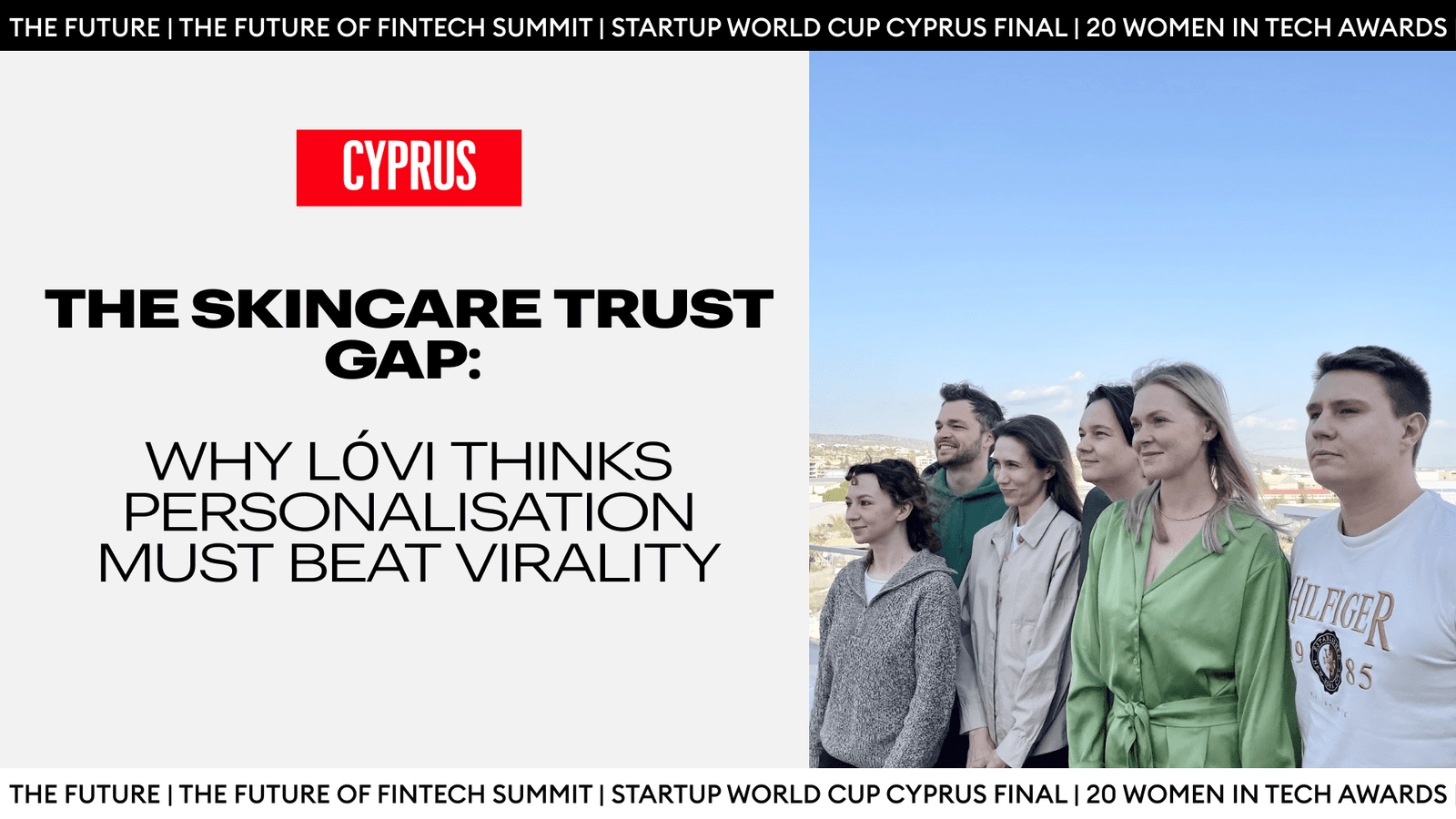According to the 2025 Global Innovation Index, it outperforms Greece, Malta, and even the United Arab Emirates, securing second place in Northern Africa and Western Asia. The Index distinguishes between innovation inputs, such as institutions, talent, and market conditions, and innovation outputs, which include knowledge creation, technology development, and creative activity. The results confirm that Cyprus has achieved strong innovation outputs despite showing weaknesses in research and market sophistication.
Understanding Cyprus’s Innovation Profile
The Global Innovation Index is organised into two sub-indices: inputs and outputs. The Innovation Input Sub-Index assesses institutions, human capital and research, infrastructure, market sophistication, and business sophistication. The Innovation Output Sub-Index records the results of those conditions, measured through knowledge and technology as well as creative activity.
Follow THE FUTURE on LinkedIn, Facebook, Instagram, X and Telegram
Cyprus places 36th worldwide for inputs but 16th for outputs, resulting in an overall rank of 25th. This gap shows that the country achieves stronger knowledge, technology, and creative results than might be expected from its institutional, educational, and market frameworks.
Cyprus’s strongest input pillar is Institutions, ranked 17th on the back of stable governance and regulation. Human capital and research are weaker at 44th, with limited R&D investment and modest scientific performance. Market sophistication falls further, at 54th, reflecting restricted financing and a small domestic market. Business sophistication is 24th, suggesting that companies in Cyprus make active use of available knowledge resources.
Output performance is comparatively stronger. Knowledge and technology outputs are ranked 24th, while Creative outputs stand out at 11th worldwide. This places Cyprus alongside economies such as China, India, and Vietnam, which also record output levels above what their input conditions alone would predict.
Creative and Business Outputs
Cyprus’s strongest results appear in the output sub-index, where both knowledge and technology outputs and creative outputs outperform its input ranking. Cyprus ranks 11th globally for Creative outputs. The country scores highly in intangible assets, creative services, and online creativity, which includes domain registrations, Wikipedia edits, and mobile app development.
According to the Index, Cyprus ranks first worldwide for ICT services imports, measured as a percentage of total trade in goods and services. The indicator covers telecommunications, computer, and information services. The country is also ranked 39th for research talent in businesses, showing that firms are struggling to attract and deploy highly qualified professionals.
The report also ranks Cyprus 83rd for software spending, suggesting local firms invest fairly modestly in digital tools. The country is 9th for scientific and technical articles relative to GDP, despite ranking 44th in Human capital and research, and recording relatively low R&D investment compared with other EU member states. At 12th worldwide for IP receipts relative to trade, Cyprus earns a comparatively high share of income from cross-border licensing and royalties.
Business sophistication, ranked 24th, is among Cyprus’s stronger input pillars. It covers knowledge absorption, R&D linkages, and employee training that help firms turn ideas into products and services. Taking the output results above, this places Cyprus among economies with business and creative capabilities uncommon for its size.
Areas of Weakness
Cyprus underperforms on the Human capital and research pillar at 44th. Within business R&D, expenditure performed by firms is 0.3 percent of GDP, ranked 50th, and the share financed by business is 54th. Research talent employed in businesses is 39th. Taken together, these scores show a modest private-sector science base by EU standards.
Market sophistication stands at 54th. Under Credit, Cyprus is 53rd, with domestic credit to the private sector at 72nd. Venture capital received is 43rd, and late-stage VC activity is 61st. Market scale is small in global terms, at 78th on a PPP basis. These readings make domestic scale-up harder and push ambitious firms to raise capital and customers beyond Cyprus.
Knowledge impact is 80th. Software spending amounts to 0.1 percent of GDP, ranked 83rd, and high-tech manufacturing is 78th. Unicorn valuation is recorded at 0.0 percent of GDP, ranked 53rd. This helps explain why knowledge impact remains below the output strengths seen in diffusion and creative activity.
The goods side of the technology trade is weak. High-tech imports are 132nd as a share of total trade, and high-tech exports are 90th, which contrasts with Cyprus’s strong reliance on cross-border ICT services.
Collaboration between academia and industry is uneven. Public research–industry co-publications rank 19th, while the survey measure of university–industry R&D collaboration is 56th, and the state of cluster development is 74th.
The demography element limits future capacity. The youth demographic dividend is 111th, reflecting a smaller youth share in the population and a tighter pipeline unless firms recruit internationally and expand reskilling.
Regional and EU context
Cyprus sits 25th worldwide. That places the island in the top half of Europe and EEA, between Belgium at 21st, Ireland at 18th, and Malta at 27th. Greece is 42nd. Executives can use these rankings to gauge competition for talent, capital, and cross-border projects.
In its home region of Northern Africa and Western Asia, Cyprus ranks second behind Israel, ahead of the United Arab Emirates and Türkiye when island economies are included. Israel is 14th overall and leads globally on several commercialisation metrics, including software spending at 3rd, ICT services exports at 1st, and strong knowledge diffusion. Cyprus, by contrast, records 83rd for software spending and 5th for knowledge diffusion, with strengths that are concentrated in trade in IP and ICT-related services rather than domestic software outlays. The comparison helps explain why Israel converts research into market outcomes at a greater scale.
Malta is the closest EU comparator by size and economic profile. It ranks 27th overall, and 3rd on Knowledge absorption, a sub-pillar that includes IP payments, high-tech imports, ICT services imports, FDI net inflows, and research talent in businesses. Malta leads on FDI net inflows at 1st and ranks 3rd for IP payments, with 9th for ICT services imports. Cyprus, by contrast, is 1st for ICT services imports, 12th for IP receipts, and 5th for FDI net inflows. Both economies rely on cross-border channels, but whereas Malta’s results lean toward FDI and IP payments, Cyprus’s strengths lie in ICT services, IP receipts, and scientific publishing.
Greece ranks 42nd overall. It places 18th for scientific and technical articles and 15th for software spending. Knowledge diffusion is 51st, with high-tech exports at 54th and ICT services exports at 80th. For cross-border projects, Greece brings strong publication output and software outlays, while Cyprus offers more developed commercial routes through ICT services imports and IP receipts.
Last thoughts
Ranked 25th, Cyprus shows output strength relative to input conditions. Creative outputs are 11th and Knowledge diffusion 5th; Human capital and research is 44th and Market sophistication 54th. The economy’s strength currently lies in services and IP channels.
However, this is not a time to get comfortable. Progress now depends on furthering business R&D and widening financing routes, with manufacturing scale best pursued through EU partners.














